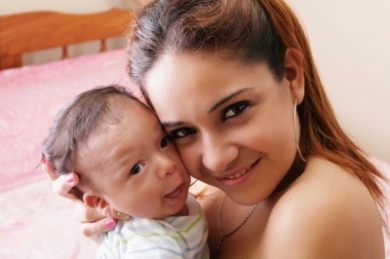Emotional Wellbeing…
What is that?
This blog post won’t ever be big enough for me to go into the topic the way I’d like (plus it would take days to cover it like I should) but it’s so important that I have to quickly touch on it.
Emotional wellbeing is a sense of security (in a nutshell).
How that comes to us is really a matter of our own particular life events and experiences. We are severely affected by negative things that happen to us and how people treat us.
If we encounter numerous difficult situations, or difficult people, in our life, our emotional wellbeing can be at risk. If we’re prone to strong bouts of weakness (when we tend to tell ourselves ‘whoa is me’) life can take a big turn south and it can be hard to get back up…ever.
We often refer that that as ‘depression’.
This can happen as early as childhood (yes, this is why a counselor or psychologist always skips right to your adolescence after the smalltalk and that’s also why we continually read about teenagers committing suicide.)
True some people are born with chemical imbalances and cannot avoid some level of the emotional and behavioral issues they will encounter, but, there are many more instances where outside factors are the main contributors.
Life pressures, abuse (physical or emotional), malnutrition, neglect, bullying and more, can lead to poor emotional wellbeing. A few of these, or all of them together, are the cocktail for poor emotional health.
Poor emotional health leads to sad kids…
Sad kids (left with issues unaddressed, ignored or denied) leads to poor mental health…
Poor mental health in children can lead to mental health issues in adults (because remember, kids grow up).
I was happy to read this today.
My blog, and how I parent- they both come from an emotionally intelligent perspective.
Why? Because my parents didn’t have one…so I learned everything the hard way.
At least I dealt with it, so now my children have a better chance of skipping over some of the trials I dealt with as a kid, and we may very well break the cycle and a laundry list of stuff they should never have to deal with. (And my grandkids shouldn’t have to deal with either.)
What is emotional intelligence?
That is also another deep subject, but not one that isn’t easy enough to learn…
Basically, it’s do unto others as you would have done to you.
Yes, it’s that simple…or maybe it isn’t, depending upon who you are.
Here are a few tips on how to be an emotionally intelligent parent (and person):
Don’t speak to a child, treat a child, force a child or feed a child something- that you yourself – would not appreciate.
That’s all.
Well, truthfully, that is not even the half of it, but it is the start –
This very attitude can help kids grow up with better mental health & emotional wellbeing.
If you are curious about this topic and would like to read further, please come back, because this is a topic I will be exploring more for you over the next several months.
Want something more to read on this topic now?
Take this quiz and learn more about Emotional Intelligence
Read this: The Language of Emotional Intelligence by Jeanne Segal Ph.D.
(Tip: skip over the doctory stuff for now in the beginning and go right to Chapter 1 – and read about ‘bonds’)
If you are married, or in a relationship, try this book- just the first couple of chapters could preserve and/or save a marriage IF BOTH PARTIES DID WHAT IT SAYS, because as I see it, if you both do what’s there, you can’t go wrong:
Read His Needs, Her Needs- How to Build an Affair Proof Marriage by Willard F. Harley, Jr.
Photo credit:”Portrait Of A Hispanic Happy Young Mother Holding A Baby” by David Castillo Dominici
on freedigitalphotos.net


